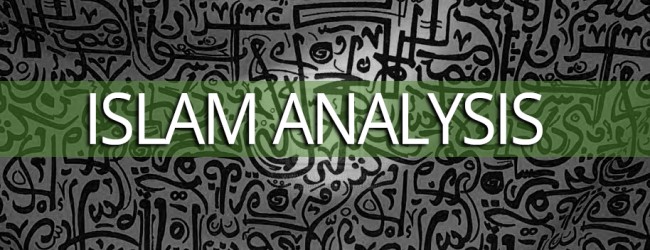
Islamic nations should form a ‘forward bloc’ united by a vision of science for development to reverse a poor record of collaboration, argues Athar Osama.
For many years, science leaders at the Organisation of the Islamic Conference (OIC) have faced a rather lethargic response from member states to the activities and calls for funding of its Standing Committee on Scientific and Technological Cooperation (COMSTECH).
In an effort to establish a coalition of countries committed to scientific collaboration, last year they set up the Science, Technology and Innovation Organisation (STIO) as COMSTECH’s implementation arm.
STIO has an approved annual budget of US$70 million, with four member states — Iran, Pakistan, Saudi Arabia and Syria — each already committing US$5 million annually towards projects to be defined by each member state and approved by COMSTECH.
STIO was to support these national projects — perhaps with voluntary international collaboration — in exchange for a ‘fee’ equalling 10 per cent of the country’s committed amount. As an added assurance, the money was to be deposited in accounts within member countries and not allowed to cross national boundaries.
Despite these early commitments and assurances, member countries of the OIC — which recently changed its name to the Organisation of Islamic Cooperation — have yet to make good on their financial commitments. And with half of its first year already gone, STIO is yet to launch a major programme.
‘Your money for your development’
Although STIO has struggled to get off the ground, it is too early to dismiss it completely. But it is important to understand why its progress has stalled so quickly.
The deal that brought STIO to life solved two problems that hampered OIC efforts to raise funds for science and technology (S&T) collaboration.
First, by allowing voluntary membership, it liberated the OIC from the burden of organising its 57 member countries, which often lacked a shared sense of direction.
Second, its premise of ‘your money for your development’ tried to avoid the myopic rivalries and concerns about free-riding between member states.
However, in trying to solve these problems, and in particular, by adopting the ‘your money for your development’ approach, STIO seems to have undersold its own value to its members.
Compelling vision
Despite STIO’s teething troubles, the basic idea of enhancing cooperation and policy coordination between OIC member countries on S&T is both noble and compelling. It also made sense to start by demonstrating success within a small group of countries willing to take the necessary steps.
However, the manner in which STIO has executed this idea leaves much to be desired. To begin with, although several OIC countries have cooperated with more developed nations, the rationale for why they must work together is yet to be clearly fleshed out.
And in the absence of a compelling set of international projects and a clear value proposition, member states may perceive STIO as an unnecessary tax on national S&T budgets. Countries may justifiably be reluctant to share their slice of the S&T pie if they cannot see how it will benefit them.
To resurrect its mission, STIO must provide a compelling vision of what can be achieved if OIC countries take the less travelled road of intra-OIC collaboration. It must also present a clear rationale of how it will add value in exchange for the 10 per cent it seeks for its services.
Addressing these challenges will require painstaking work within the confines of STIO’s inaugural resolution. And it must come out as a winner.
The stakes are high: creating STIO took years of diplomatic hard work to get around the impasse at COMSTECH, and failure could set the OIC’s science cooperation agenda back by at least a couple of decades.
Moving forward
Muslim countries must also explore and encourage alternative ways to promote collaboration in S&T. The OIC must encourage forums outside the OIC to encourage like-minded countries to form coalitions committed to the broad principles of using S&T for development.
But how should such a ‘forward bloc’ come about? The answer may be much easier than many anticipate.
One potential candidate may be the D8 (Developing 8), which is a group of eight developing countries with a mainly Muslim population joined together by a mutual desire for greater cooperation on development.
Formed in 1997 in Istanbul, the D8 binds its member countries — Bangladesh, Egypt, Indonesia, Iran, Malaysia, Nigeria, Pakistan and Turkey — in an alliance on issues ranging from trade to energy, agriculture and human development.
The D8 could be an ideal choice for a forward bloc of Muslim countries seeking to take proactive steps in science-based development. Its members have a sense of shared history and destiny, and have similar human and financial resources.
Although individual countries broadly agree on issues of science-based development, if the D8 is to be effective it should re-assert the importance of S&T in almost every area of focus in its charter.
Making such a connection will provide a common philosophical thread that will tie these areas together, and re-energise the D8 to use S&T to address the common development challenges facing its member countries.
By encouraging the creation of a forward bloc in D8 and making it successful, the OIC could inspire its more sceptical members to follow suit.

Athar Osama is a London-based science and innovation policy researcher and consultant, and director of Middle East and Asia for a technology policy consulting firm. He is the founder of localhost/muslim.
Note: The article was originally published in SciDev.Net under the title “Creating a Clear Vision for Cooperation”.
You must be logged in to post a comment.